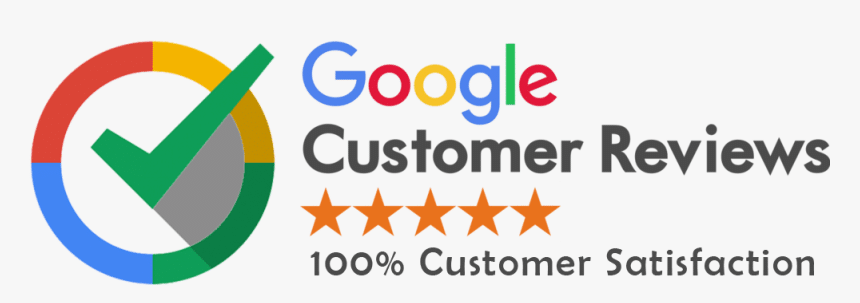Selecting the right e-commerce software platform is a critical decision for any online business. The platform you choose impacts everything from how customers experience your ecommerce store to how easily you can manage inventory and orders. With many options available, it’s important to consider factors like scalability, security, and customization to ensure your platform can meet your business needs now and in the future.

Why Choosing the Right E-Commerce Platform Matters?
The right e-commerce platform supports your business operations, enhances the customer shopping experience, and helps streamline marketing efforts and sales. According to Statista, the global e-commerce market is expected to reach $6.3 trillion by 2024, creating vast opportunities. A good platform ensures smooth functionality and provides the tools necessary to grow your online business effectively. The wrong choice can lead to technical difficulties, poor website performance, or challenges scaling your business.
Key Factors to Consider When Choosing an E-Commerce Platform
Business Size and Growth Potential
When choosing an e-commerce platform, consider your business’s size and growth trajectory. Whether you’re a small business with a limited catalog or a large enterprise looking to scale, the platform must be flexible enough to accommodate your current and future needs.
For Small Businesses:
- Platforms like Shopify and Wix are known for their user-friendly interfaces, making them perfect for businesses with limited technical expertise.
For Larger Businesses:
- Magento and BigCommerce offer greater customization options and scalability for businesses planning to expand.
According to the Last Clutch survey showed that 37% of small businesses with fewer than 50 employees prefer Shopify for its ease of use and flexibility, which is ideal for startups.
Ease of Use and Setup
A platform’s usability is a key factor. You’ll want a solution that’s easy to set up and manage, especially if you don’t have extensive technical experience. Platforms like Shopify and Wix are known for their intuitive designs, while more advanced options like WooCommerce may require a bit more technical knowledge.
Examples:
- Shopify: Ideal for beginners, with an intuitive setup process and a drag-and-drop interface.
- WooCommerce: Great for WordPress users, offering flexibility but requiring some technical expertise.
- Squarespace: Best for businesses focused on design, offering easy customization for a visually appealing store.
Customization and Flexibility
As your business grows, you may want more control over the look and functionality of your online store. Some platforms are more flexible than others in terms of customization.
Open-Source vs. Hosted Solutions:
- Magento (Open-Source): Offers deep customization options, ideal for businesses with complex needs and technical resources.
- Shopify (Hosted): While more limited in customization, Shopify offers a vast array of apps and themes to extend functionality.
Flexibility allows your store to evolve as your business does. Ensure that your chosen platform can grow with your business by supporting new integrations and adding features as needed.
SEO and Marketing Capabilities
Good SEO is essential for driving organic traffic to your store. A platform with built-in SEO features and marketing tools can help you attract more visitors and convert them into customers.
Features to Look For:
- SEO-friendly URL structures
- Integration with Google Analytics
- Built-in blogging tools
- Social media integration
Top Platforms with Strong SEO Features:
- Shopify: Known for its SEO-friendly design and easy integration with Google and Facebook.
- BigCommerce: Offers comprehensive SEO features, including customizable URL structures and rich metadata.
- Wix: Features a built-in SEO Wiz tool that guides users through SEO setup.
Security and Payment Gateways
Security is vital to protect both customer data and your business’s financial transactions. Make sure the platform supports secure payment gateways and complies with industry standards such as SSL encryption and PCI compliance.
Popular Payment Gateways:
- PayPal, Stripe, and Square are commonly used options, and the platform you choose should integrate with these services.
Security Considerations:
- Does the platform offer SSL encryption for secure transactions?
- How does it handle fraud prevention?
Shopify and WooCommerce offer robust security measures, ensuring customer data is protected throughout the transaction process.
Mobile Optimization
More consumers are shopping on mobile devices than ever before. By 2021, mobile commerce was expected to account for 73% of total e-commerce sales (Source: Statista). A mobile-optimized platform ensures your store is accessible and provides a seamless shopping experience across devices.
Mobile-Optimized Platforms:
- Shopify: Known for responsive themes that automatically adjust for mobile devices.
- BigCommerce: Offers mobile-friendly templates that provide a smooth experience on smartphones and tablets.
Customer Support
Access to reliable customer support is essential, particularly if issues arise during store setup or while managing orders. Check whether the platform provides 24/7 support and multiple contact methods, such as phone, email, and live chat.
Top Platforms with Strong Support:
- Shopify: Offers 24/7 support and a strong online community for additional help.
- Magento: Known for a robust support system, although it may require technical assistance for more complex issues.
Conclusion
Choosing the right e-commerce software platform is a key decision that affects your store’s performance, security, and ability to scale. Consider your business’s size, growth goals, and specific needs when evaluating platforms. Look for user-friendly options with strong SEO capabilities, security features, and mobile optimization. Platforms like Shopify and BigCommerce offer excellent solutions for most businesses, while Magento is ideal for those with complex needs and technical resources.
Actionable Takeaway: To make the best choice, begin by understanding your business needs, such as the type of products you sell, how much customization you require, and how fast you expect to grow. Use the insights provided in this guide to compare platforms and choose the one that aligns with your long-term goals.


